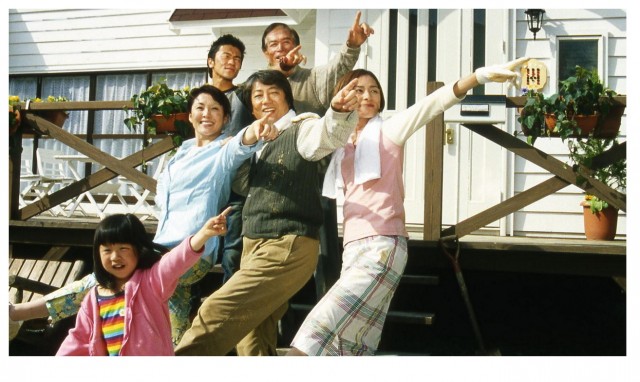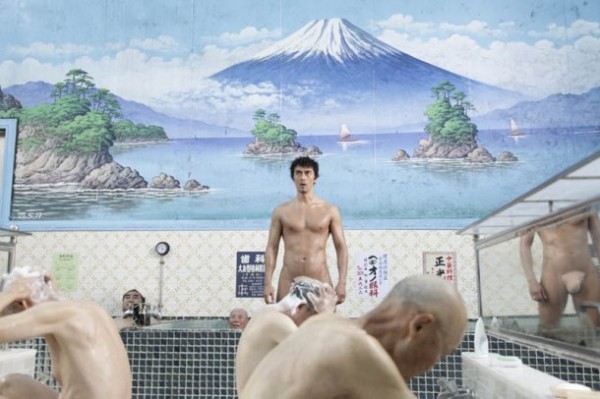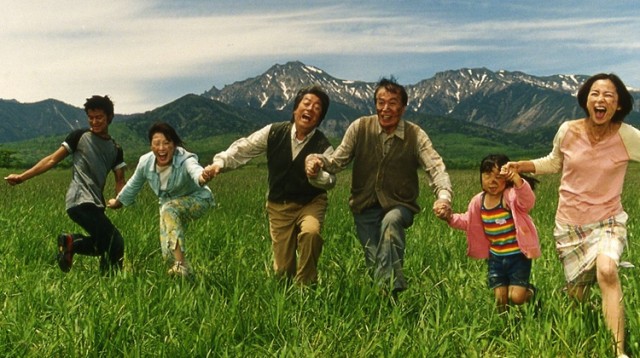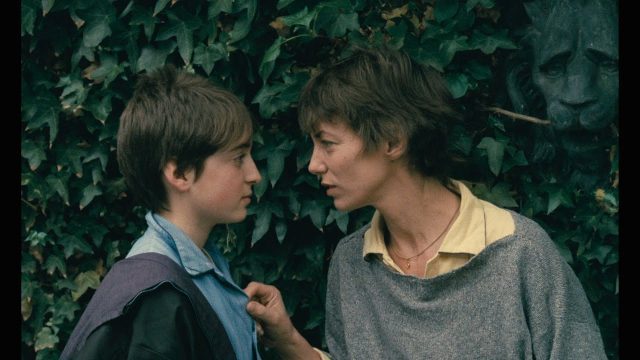
Julien (Mathieu Demy) and Mary-Jane (Jane Birkin) fall for each other in Agnès Varda’s Kung-Fu Master!
KUNG-FU MASTER! (LE PETIT AMOUR) (Agnès Varda, 1988)
Metrograph
7 Ludlow St. between Canal & Hester Sts.
Friday, May 19, 7:30
Sunday, May 21, 1:00
Thursday, May 25, 5:15
Series runs May 19-25
metrograph.com
“These movies have all given me something that I remember and think about since seeing them and have also made my own body react; to some of them because of sounds, joy, horror, or all of it. These films have somehow challenged the part of my brain that judges and second guesses,” LA-based Swiss artist Louise Bonnet says about the works she has chosen for the Metrograph series “Louise Bonnet Selects.” Presented with Gagosian, it runs May 19-25 and consists of seven films, from Steven Spielberg’s A.I. Artificial Intelligence and Bob Fosse’s All That Jazz to Takashi Miike’s Audition and André Øvredal’s The Autopsy of Jane Doe. Bonnet will be at Metrograph on May 20 at 7:00 for a screening of David Cronenberg’s The Brood, after which she will discuss the 1979 cult favorite with cultural critic Naomi Fry.
“Louise Bonnet Selects” includes a genuine family affair, Agnès Varda’s curiously compelling 1988 drama Kung-Fu Master!, the French title of which is the more appropriate Le petit amour, or “The Little Love.” Written by Varda and English actress, model, and singer-songwriter Jane Birkin from Birkin’s idea, the film stars Birkin as Mary-Jane, a divorced forty-year-old woman living with her fourteen-year-old daughter, Lucy, portrayed with wide-eyed innocence by Charlotte Gainsbourg, Birkin’s real-life daughter with French superstar Serge Gainsbourg, and her younger child, Lou, played by Lou Doillon, Birkin’s daughter with French director Jacques Doillon.
Mary-Jane falls in love practically at first sight with one of Lucy’s classmates, fourteen-year-old Julien, portrayed by Mathieu Demy, Varda’s son with French auteur Jacques Demy. Birkin’s parents, actress and playwright Judy Campbell and fine artist and actor David Birkin, play Mary-Jane’s mother and father, while Birkin’s brother, screenwriter Andrew Birkin, plays her brother. And Varda’s daughter, costume designer, actress, and producer Rosalie Varda, will be at the Walter Reade Theater on January 6 to introduce the screening. Varda often liked to blur the line between fiction and nonfiction, but don’t let all that reality confuse you: Kung-Fu Master! is most certainly not a documentary, thank goodness.
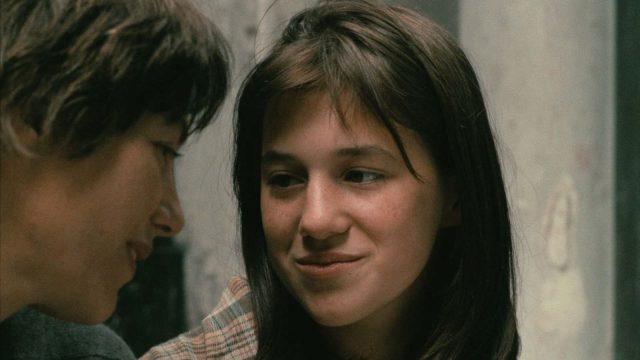
Mother and daughter Jane Birkin and Charlotte Gainsbourg star as mother and daughter in Kung-Fu Master!
Somewhat reminiscent of Bertrand Blier’s 1981 Beau-père, in which thirty-year-old Rémi (Patrick Dewaere) falls for his fourteen-year-old stepdaughter, Marion (Ariel Besse), Kung-Fu Master! treads in dangerous territory, exploring a taboo love, even as it does so with care and sensitivity and a tender performance by Birkin. Mary-Jane is well aware that she should not be considering a relationship with a young boy, but she has a yearning to explore the furthest boundaries of desire.
However, her choice of Julien is beyond strange, as he is an ordinary teen, who plays Dungeons and Dragons and the arcade game Kung-Fu Master! and has banal conversations with his peers; he is not some hulking, mature figure who is smart and sophisticated for his age. “I know I won’t be around when you start shaving,” Mary-Jane tells Julien. The film also refers repeatedly to the AIDS crisis, which the teenagers are only just learning about and dismiss as somebody else’s problem. Varda never brings the AIDS subplot full circle; perhaps it’s there primarily to emphasize the dangers sex can bring, but she leaves that thread hanging. You’re likely to feel dirty watching Kung-Fu Master!, but you also won’t be able to look away.
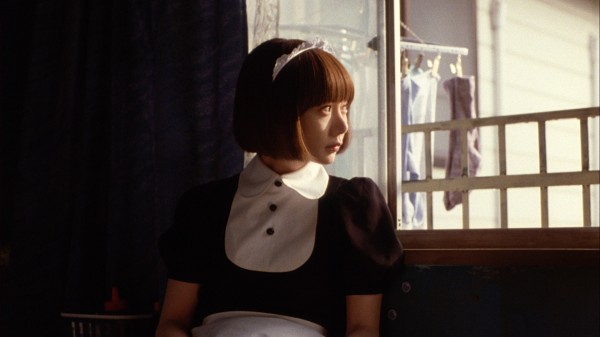
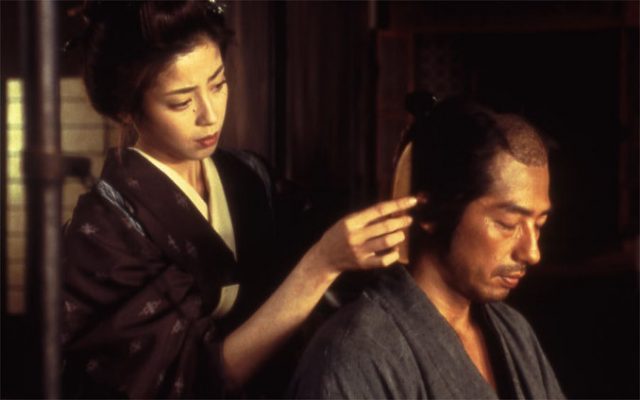
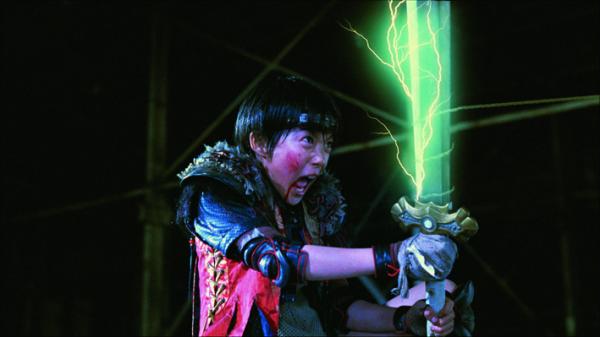
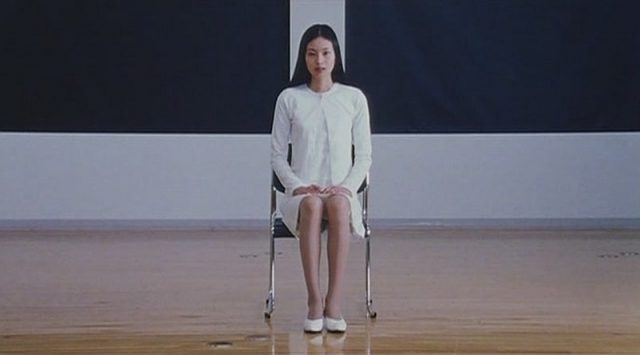
 When Audition opened in 1999 at Film Forum, it was New Yorkers’ major introduction to the work of Japanese director Takashi Miike — and some cineastes ran out of the theater faster than they lined up around the block to get in in the first place. The shocking, unconventional psychosexual horror classic, which won the FIPRESCI Prize and the KNF Award at the Rotterdam International Film Festival, is now back in a 2K twentieth-anniversary restoration that will likely have people lining up at Metrograph, where it opens July 3. But this is a different (#MeToo, social-media-obsessed) era, so don’t expect many walkouts, although there will be plenty of head-turning and face-covering. There also will be a critical reevaluation of the film’s central concept, a misogynistic male fantasy that evolves into torture/revenge porn.
When Audition opened in 1999 at Film Forum, it was New Yorkers’ major introduction to the work of Japanese director Takashi Miike — and some cineastes ran out of the theater faster than they lined up around the block to get in in the first place. The shocking, unconventional psychosexual horror classic, which won the FIPRESCI Prize and the KNF Award at the Rotterdam International Film Festival, is now back in a 2K twentieth-anniversary restoration that will likely have people lining up at Metrograph, where it opens July 3. But this is a different (#MeToo, social-media-obsessed) era, so don’t expect many walkouts, although there will be plenty of head-turning and face-covering. There also will be a critical reevaluation of the film’s central concept, a misogynistic male fantasy that evolves into torture/revenge porn.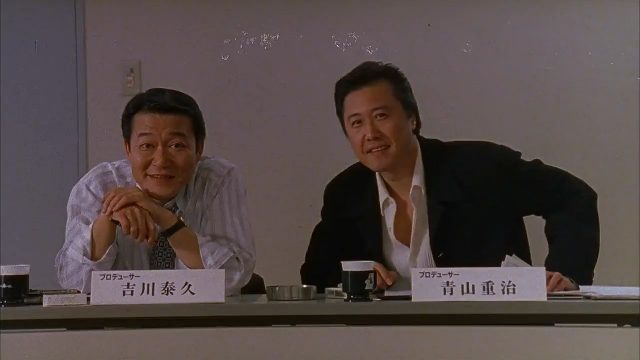
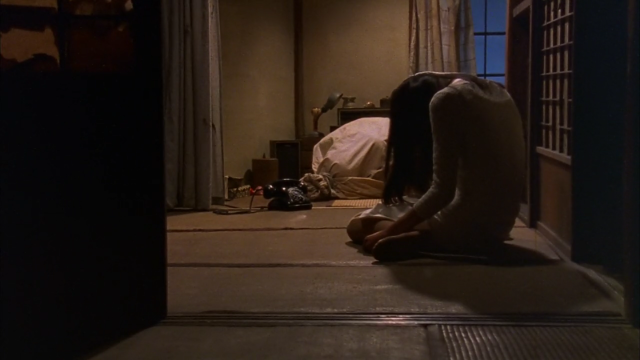
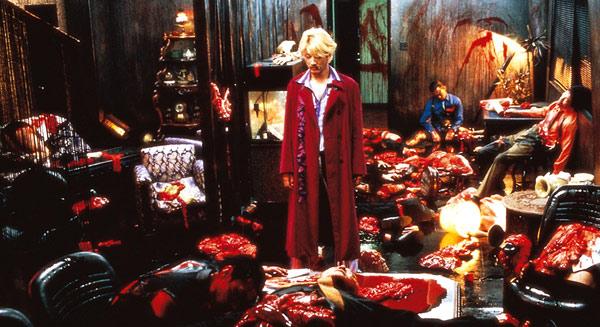
 Takashi Miike, who about fifteen few years ago had New York filmgoers rushing to Film Forum to see Audition — and then rushing to get out because of the violent torture scenes — did it again with Ichi the Killer, a faithful adaptation of Hideo Yamamoto’s hit manga. When Boss Anjo goes missing while beating the hell out of a prostitute, his gang, led by Kakihara (Tadanobu Asano), a multipierced blond sadomasochist, tries to find him by threatening and torturing members of other gangs. As the violence continues to grow — including faces torn and sliced off, numerous decapitations, innards splattered on walls and ceilings, body parts cut off, and self-mutilation — the killer turns out to be a young man named Ichi (Nao Omori), whose memory of a long-ago brutal rape turns him into a costumed avenger, crying like a baby as he leaves bloody mess after bloody mess on his mission to rid the world of bullies. This psychosexual S&M gorefest, which is certainly not for the squeamish, comes courtesy of the endlessly imaginative Miike, who trained with master filmmaker Shohei Imamura and seems to love really sharp objects. The excellent — and brave — cast also includes directors Sabu and Shinya Tsukamoto, composer Sakichi Satô, and Hong Kong starlet Alien Sun. The film is screening as part of the Nitehawk Midnite Screenings series “Crime,” which continues through October 30 with such other very different thrillers as William Friedkin’s The French Connection, Abel Ferrara’s Bad Lieutenant, George Lucas’s THX 138, John Boorman’s Point Blank, Richard Brooks’s In Cold Blood, Luc Besson’s The Fifth Element, and Gordon Parks Jr.’s Super Fly.
Takashi Miike, who about fifteen few years ago had New York filmgoers rushing to Film Forum to see Audition — and then rushing to get out because of the violent torture scenes — did it again with Ichi the Killer, a faithful adaptation of Hideo Yamamoto’s hit manga. When Boss Anjo goes missing while beating the hell out of a prostitute, his gang, led by Kakihara (Tadanobu Asano), a multipierced blond sadomasochist, tries to find him by threatening and torturing members of other gangs. As the violence continues to grow — including faces torn and sliced off, numerous decapitations, innards splattered on walls and ceilings, body parts cut off, and self-mutilation — the killer turns out to be a young man named Ichi (Nao Omori), whose memory of a long-ago brutal rape turns him into a costumed avenger, crying like a baby as he leaves bloody mess after bloody mess on his mission to rid the world of bullies. This psychosexual S&M gorefest, which is certainly not for the squeamish, comes courtesy of the endlessly imaginative Miike, who trained with master filmmaker Shohei Imamura and seems to love really sharp objects. The excellent — and brave — cast also includes directors Sabu and Shinya Tsukamoto, composer Sakichi Satô, and Hong Kong starlet Alien Sun. The film is screening as part of the Nitehawk Midnite Screenings series “Crime,” which continues through October 30 with such other very different thrillers as William Friedkin’s The French Connection, Abel Ferrara’s Bad Lieutenant, George Lucas’s THX 138, John Boorman’s Point Blank, Richard Brooks’s In Cold Blood, Luc Besson’s The Fifth Element, and Gordon Parks Jr.’s Super Fly. 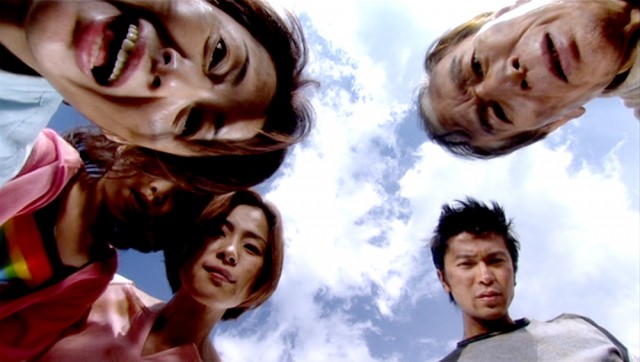
 “Let’s forget any accidents by singing and dancing!” is the cry of the Katakuris, a seemingly cursed family in one of the craziest dark musical comedies you’re ever likely to see. Japanese genre king Takashi Miike, who has made more than 120 films in his twenty-five-year career, outdid himself in 2001’s The Happiness of the Katakuris, an endlessly inventive tale of a disaster-ridden clan that moves to the middle of nowhere to run a country inn, lured by a rumor that a railroad will be built nearby. Masao Katakuri (Kenji Sawada) is a laid-off department-store shoe salesman who has big dreams, supported by his devoted wife and former work colleague, Terue (Keiko Matsuzaka). Their daughter, Shizue (Naomi Nishida), is a divorced single mother who falls for suspicious navy officer Richard Sagawa (Kiyoshiro Imawano), while their son, Masayuki (Shinji Takeda), is a disgraced financier. Masao’s elderly father, Jinpei (Tetsurō Tamba), likes killing birds and playing with the family dog, Pochi. The film is narrated by Terue’s young daughter, Yurie (Tamaki Miyazaki), who is sharing her memories of one very bizarre summer. Desperate for paying customers at the bed and breakfast they have dubbed White Lovers, the family is excited when a guest finally arrives, but alas, he is there only to commit suicide. Afraid that news of his death would ruin any chances of success, the Katakuris decide to cover it up by burying the man and not reporting anything to the police. And when subsequent guests end up dead as well — in bizarre, ridiculous ways — there is no turning back.
“Let’s forget any accidents by singing and dancing!” is the cry of the Katakuris, a seemingly cursed family in one of the craziest dark musical comedies you’re ever likely to see. Japanese genre king Takashi Miike, who has made more than 120 films in his twenty-five-year career, outdid himself in 2001’s The Happiness of the Katakuris, an endlessly inventive tale of a disaster-ridden clan that moves to the middle of nowhere to run a country inn, lured by a rumor that a railroad will be built nearby. Masao Katakuri (Kenji Sawada) is a laid-off department-store shoe salesman who has big dreams, supported by his devoted wife and former work colleague, Terue (Keiko Matsuzaka). Their daughter, Shizue (Naomi Nishida), is a divorced single mother who falls for suspicious navy officer Richard Sagawa (Kiyoshiro Imawano), while their son, Masayuki (Shinji Takeda), is a disgraced financier. Masao’s elderly father, Jinpei (Tetsurō Tamba), likes killing birds and playing with the family dog, Pochi. The film is narrated by Terue’s young daughter, Yurie (Tamaki Miyazaki), who is sharing her memories of one very bizarre summer. Desperate for paying customers at the bed and breakfast they have dubbed White Lovers, the family is excited when a guest finally arrives, but alas, he is there only to commit suicide. Afraid that news of his death would ruin any chances of success, the Katakuris decide to cover it up by burying the man and not reporting anything to the police. And when subsequent guests end up dead as well — in bizarre, ridiculous ways — there is no turning back.